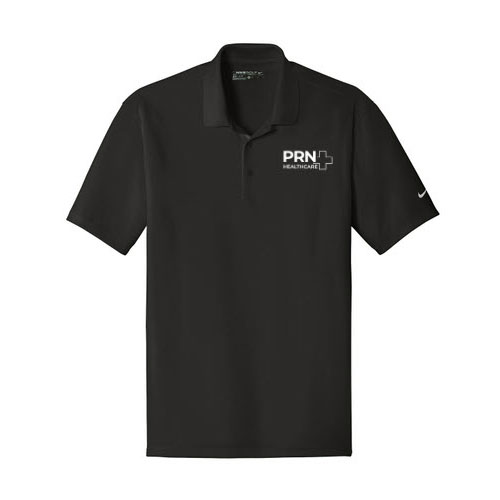Table of Contents
Preparing for the interview is crucial because it increases your likelihood of securing a hospice RN job. Effective and thorough preparation helps a candidate present themselves with confidence, clearly articulate their skills and experiences, and respond effectively to the questions. By practicing potential interview questions, an RN can refine their answers, reduce their anxiety, and demonstrate they are the best candidate for the job.
Preparation reflects positivity on a candidate’s enthusiasm and performance, and it will leave a good impression on the potential employer. In a competitive job market, being prepared can be a differentiator to set a candidate apart from fellow candidates.
Preparing for your CHPN interview involves anticipating questions about both your technical knowledge and skill set. Here are 20 potential interview questions along with potential answers:
Why did you choose to become a CHPN?
Answer: “I am passionate about providing comfort and dignity to patients in their final stages of life. Hospice care allows me to focus on the quality of life, which is something I believe is extremely valuable for both patients and their families.”
What do you find most rewarding about being a hospice RN?
Answer: “The most rewarding part is knowing that I can provide comfort and dignity to patients in their final moments and offer support to families as they go through the grieving process.”
How do you manage a patient’s pain and symptoms effectively?
Answer: “I use a combination of medication, non-pharmacological interventions, and regular assessments to manage pain. I also communicate closely with the interdisciplinary team to ensure the patient is comfortable at all times.”
What is your experience with advanced directives and end-of-life discussions?
Answer: “I frequently initiate conversations about advanced directives with patients and families, ensuring their wishes are honored. I also explain options like DNRs and living wills clearly, providing support during these difficult discussions.”
Can you describe how you would handle a difficult family dynamic during hospice care?
Answer: “I remain empathetic, neutral, and focused on the patient’s needs. I work to facilitate open communication and help families express their concerns. If needed, I involve social workers or chaplains to provide additional support.”
How do you support patients and families emotionally?
Answer: “I offer a listening ear, validate their feelings, and provide reassurance. Being present and available for them, whether to answer questions or offer a comforting presence, is essential.”
What are the most important qualities a hospice RN should have?
Answer: “A hospice nurse must have excellent communication and listening skills. They must be able to empathize with patients and families by offering kindness and understanding in a difficult time.”
Describe a situation where you had to advocate for a patient’s wishes.
Answer: “I had a patient whose family wanted her to pursue aggressive treatments despite the patient’s wishes for only palliative care. I involved the care team to ensure the patient’s voice was heard and that we respected their end-of-life wishes.”
What has been your experience with interdisciplinary teams in hospice care?
Answer: “I have worked closely with doctors, social workers, chaplains, and therapists to create care plans that address physical, emotional, and spiritual needs. Collaboration is key to providing holistic care.”
How do you educate families about the dying process?
Answer: “I explain the physical signs of dying in clear, compassionate terms and let families know what to expect. I offer guidance on how to provide comfort, involve them in care decisions, and assure them that we are focused on the patient’s well-being.”
How do you handle stress and emotional challenges in hospice care?
Answer: “I practice self-care, work to maintain professional boundaries, and use support systems like team debriefings or counseling when needed. It’s important to acknowledge that end-of-life care can be taxing and it’s important to manage our own emotions and cope with loss while providing stable, consistent care to patients.”
What do you find most rewarding about hospice nursing?
Answer: “The most rewarding part is knowing that I can provide comfort and dignity to patients in their final moments, while also offering support to families as they go through the grieving process.”
How do you assess and manage a patient’s psychological and spiritual needs?
Answer: “I assess their psychological and spiritual needs through active listening and observation. If patients or families express concerns, I offer emotional support or involve our chaplain or a counselor to address their specific needs.”
How do you handle end-of-life ethical dilemmas?
Answer: “I approach ethical dilemmas by focusing on the patient’s values and wishes. I consult with the interdisciplinary team and follow ethical guidelines, ensuring decisions align with both the patient’s desires and hospice best practices.”
How do you provide care for a patient who is non-verbal or unable to communicate?
Answer: “I rely on non-verbal cues such as changes in vital signs, facial expressions, or body language to assess discomfort or distress. I also communicate closely with family members to understand the patient’s preferences and past behaviors.”
Can you give an example of a time when you had to handle a sudden crisis with a patient?
Answer: “I had a patient who suddenly became very agitated due to unmanaged pain. I quickly assessed the situation, consulted with the physician, and administered additional pain medications which helped calm the patient and restore their comfort.”
How do you ensure you stay current with hospice and palliative care practices?
Answer: “I regularly attend continuing education programs, participate in professional organizations, and keep up with the latest research and guidelines to ensure I’m providing the best possible care.”
How do you work with families who are not ready to accept hospice care for their loved ones?
Answer: “I approach these situations with empathy and patience while providing information on the benefits of hospice care and how it can enhance the patient’s quality of life. I also give families time and space to process the decision, while being there to support them.”
How do you manage a patient’s care when they prefer alternative or complementary therapies?
Answer: “I am open to discussing complementary therapies and will consult the care team to ensure that any alternative treatments align with the patient’s overall care plan and do not interfere with prescribed medications or treatments.”
Describe a situation where you had to provide education or guidance to a new hospice nurse.
Answer: “I mentored a new hospice nurse by walking her through patient care protocols, explaining pain management techniques, and helping her navigate some challenging situations.
Interview preparation is key to a strong, first impression. By practicing possible interview questions, an hospice RN can improve their communication skills, reduce their anxiety, and convey their qualifications and desire for the nursing position. Preparation will help boost your confidence and demonstrate your commitment and professionalism. Being well-prepared is an important step toward career success as a hospice RN.




